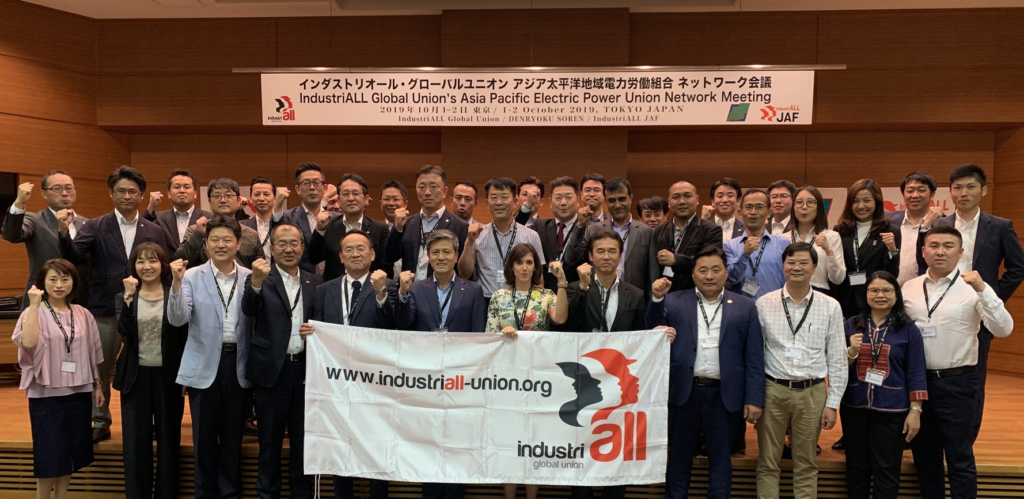Read this article in:
English
8 October, 2019IndustriALL’s Asia Pacific electric power union network vows to increase collaboration amongst unions in the region to face the challenge of industry 4.0.
35 union leaders, including six women, from Japan, South Korea, Mongolia, Vietnam, Thailand, Indonesia and Nepal met in Tokyo on 1-2 October to discuss the impact of the economic slowdown and technology revolution on workers.
The network’s chairperson Kaoru Kishimoto said that technological change has precipitated the slow growth of the energy industry, however energy consumption is steadily increasing due to the growth of multinational companies in Asia.
In 1998, the economies of South Korea and Indonesia were severely hit by Asia’s financial crisis. Both governments took IMF’s advice to liberalize foreign investment and dismantle domestic monopolies.
“IMF’s liberalization policy not only broke up the Korean Electric Power Corporation (KEPCO) into six subsidiaries and six unions; there is now a wide use of outsourced workers.
“The Korean National Electrical Workers’ Union (KNEWU) has successfully persuaded the company to change the status of thousands of temporary workers to permanent workers. We are undoing the damaged done by the IMF 20 years ago,” said Choi Cheol Ho, KNEWU president.
“After the financial crisis, the Indonesian government signed a letter of intent with the IMF to liberalize the electric power sector. As a result, the process of power generation, transmission, distribution and engineering support are handled by different companies.
“Most subsidiaries hire contract workers making organizing difficult. And there is a huge welfare gap between subcontracting workers’ and permanent workers,” said Galih Wawan Haryantho, sectoral secretary of Chemical, Energy and Mines Workers Union (CEMWU).
The explosion at the Fukushima nuclear plant in 2011 has led to a declining interest in joining the nuclear power industry. Kishimoto said that a recovery of society’s trust is vital to be able to increase the current workforce of 80,000.
“Public opinion in Mongolia is divided over the construction of nuclear power plants, with fears over how it will affect animals and the environment. The government has postponed building a nuclear power plant, said” Said Khuyag Buyanjargal, president of Federation of Mongolian Energy and Mining Trade Union.
Change of network leadership
The meeting saw Koji Sakata, the current president of Japanese union DENRYOKU-SOREN, succeeding Kishimoto as the new chairperson of the network.
The meeting concluded with a visit to the Kawasaki thermal power station in Yokohama.
